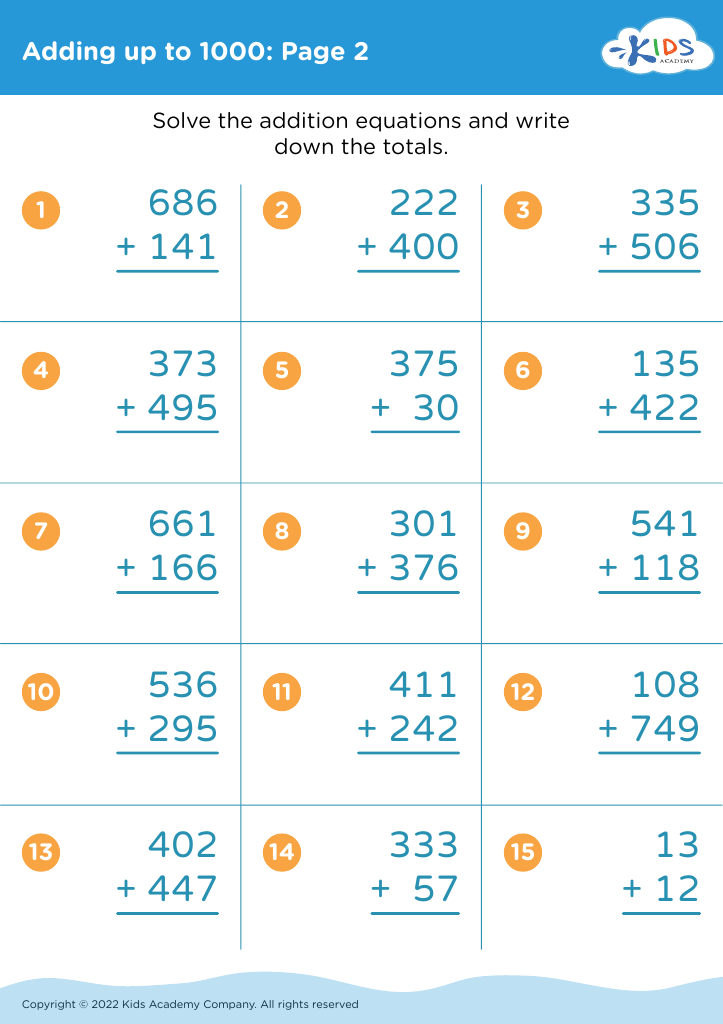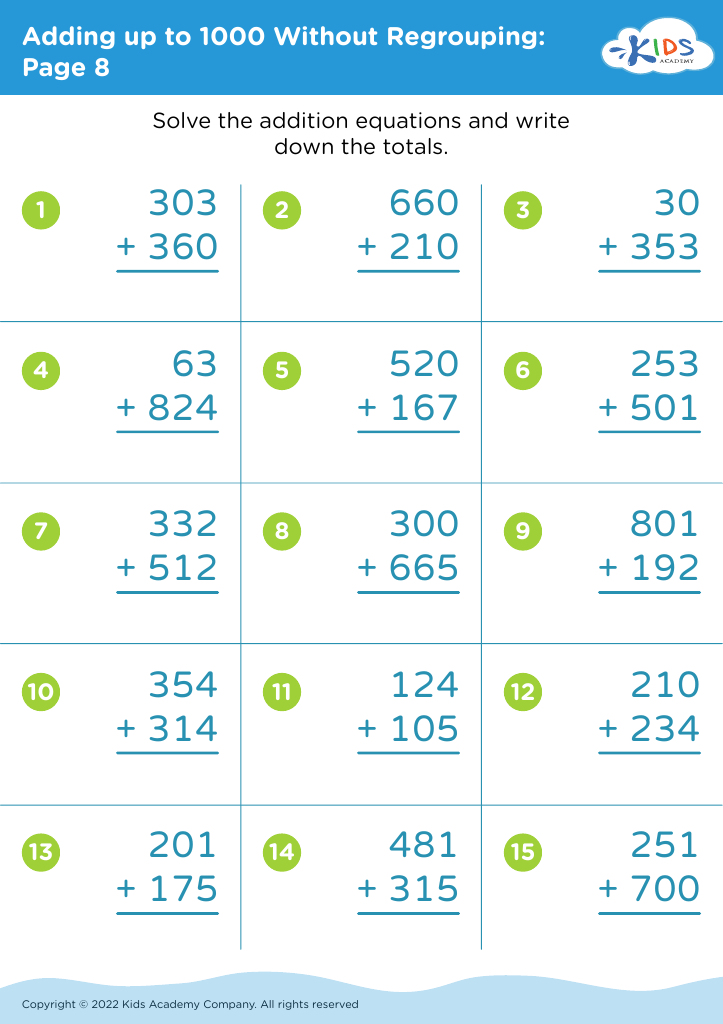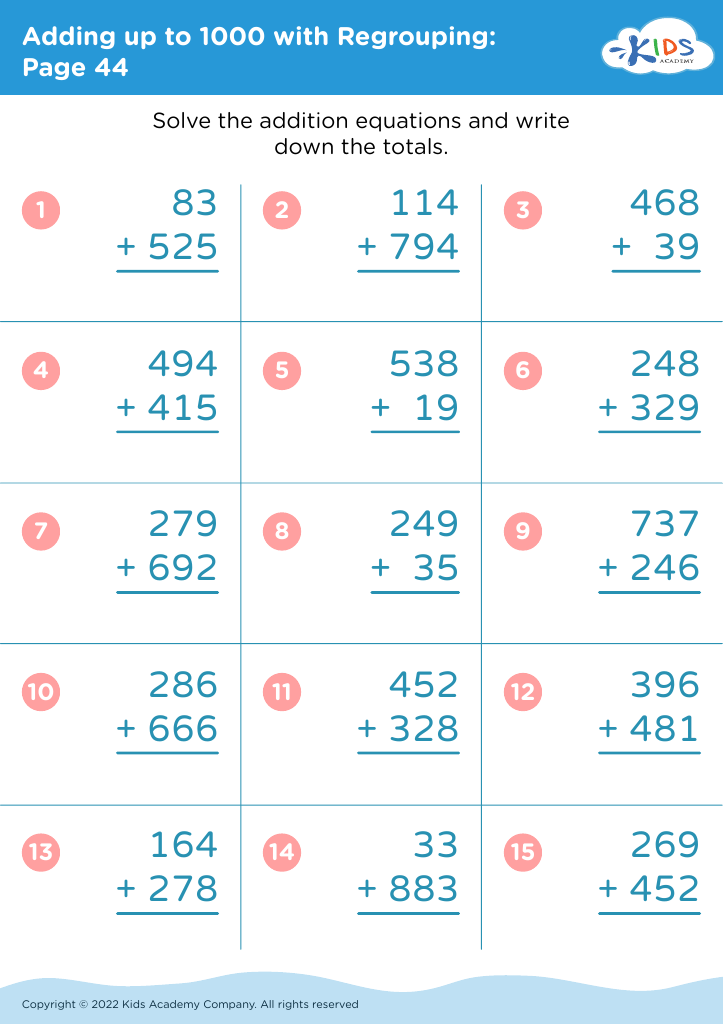Develop critical thinking Adding up to 1000 Worksheets for Ages 3-7
3 filtered results
-
From - To
Unlock your child's potential with our "Develop Critical Thinking: Adding up to 1000 Worksheets for Ages 3-7". Tailored for young learners, these engaging worksheets enhance problem-solving skills through fun addition exercises. Each activity is designed to challenge young minds, encouraging logical thinking and improving numerical fluency. From simple sums to more complex problems, your child will gain confidence and mastery in adding up to 1000. Perfect for both classroom and home use, these worksheets are a valuable resource for any educational journey. Start today and watch your child's critical thinking and math abilities soar!
Cultivating critical thinking and arithmetic skills in children ages 3-7 paves the way for long-term academic and personal success. Developing critical thinking at an early age empowers kids to analyze situations, make informed decisions, solve problems creatively, and think independently, which are essential for navigating daily life and mastering more complex concepts in later years.
Moreover, early exposure to adding numbers up to 1000 builds a strong mathematical foundation, vital for higher-level math and logical reasoning. Young children who grasp these fundamental skills tend to experience increased confidence and enthusiasm towards learning. Quick early arithmetic skills trickling into their broader educational journey enhance their ability to understand and manipulate numbers, presenting math as an approachable and enjoyable subject.
Additionally, instilling these skills at a young age fosters an environment of curiosity and analytical thinking. Parents and teachers actively engaging in these educational tasks with children demonstrate a supportive learning culture, establishing the importance of education and lifelong learning. By prioritizing these skills, parents and teachers not only help children achieve immediate academic milestones but also equip them with essential tools for overall cognitive and personal development, ensuring a brighter and more secure future.















